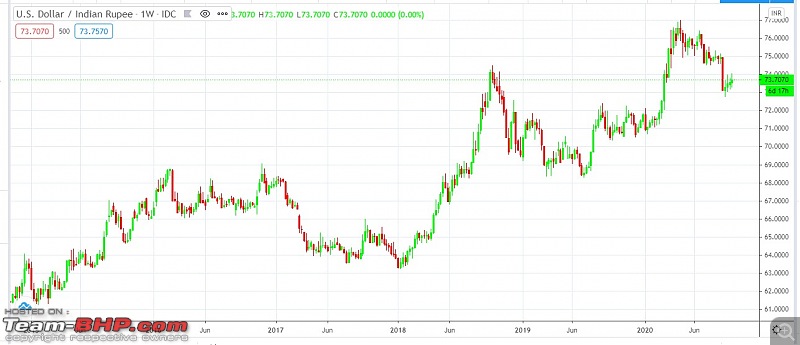| | #751 |
| Team-BHP Support  | |
| |  (2)
Thanks (2)
Thanks
|
| |
| | #752 |
| Senior - BHPian | |
| |
| | #753 |
| Team-BHP Support  | |
| |
| | #754 |
| Team-BHP Support  | |
| |  (14)
Thanks (14)
Thanks
|
| | #755 |
| BANNED Join Date: Mar 2007 Location: Kolhapur
Posts: 1,717
Thanked: 1,901 Times
| |
| |  (2)
Thanks (2)
Thanks
|
| | #756 |
| Distinguished - BHPian  Join Date: Aug 2014 Location: Delhi-NCR
Posts: 4,071
Thanked: 64,306 Times
| |
| |  (8)
Thanks (8)
Thanks
|
| | #757 |
| BHPian Join Date: Aug 2009 Location: Bangalore
Posts: 169
Thanked: 797 Times
| |
| |  (3)
Thanks (3)
Thanks
|
| | #758 |
| Team-BHP Support  | |
| |  (12)
Thanks (12)
Thanks
|
| | #759 |
| Senior - BHPian | |
| |  (1)
Thanks (1)
Thanks
|
| | #760 |
| BHPian Join Date: Aug 2009 Location: Bangalore
Posts: 169
Thanked: 797 Times
| |
| |  (2)
Thanks (2)
Thanks
|
| | #761 |
| Distinguished - BHPian  Join Date: Aug 2014 Location: Delhi-NCR
Posts: 4,071
Thanked: 64,306 Times
| |
| |  (6)
Thanks (6)
Thanks
|
| |
| | #762 |
| BHPian Join Date: Aug 2009 Location: Bangalore
Posts: 169
Thanked: 797 Times
| |
| |  (7)
Thanks (7)
Thanks
|
| | #763 |
| BHPian Join Date: Sep 2010 Location: Bangalore
Posts: 184
Thanked: 2,718 Times
| |
| |
| | #764 |
| BHPian Join Date: Jun 2008 Location: BLR/EWR
Posts: 780
Thanked: 368 Times
| |
| |
| | #765 |
| BHPian Join Date: Oct 2016 Location: Bengaluru
Posts: 254
Thanked: 1,336 Times
| |
| |
 |
Most Viewed








 . Learned members have argued here that BSNL/AI is what is keeping telecom/air tariffs low, not Jio or Indigo. That's when you bring in the popcorn
. Learned members have argued here that BSNL/AI is what is keeping telecom/air tariffs low, not Jio or Indigo. That's when you bring in the popcorn 